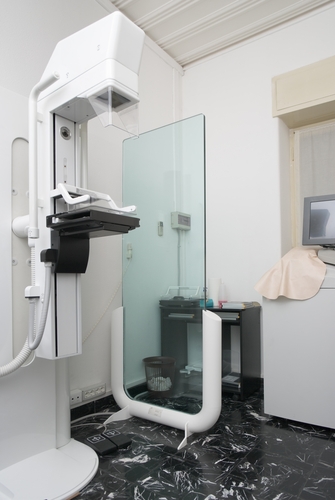States continue to pass legislation that requires radiologists to inform women if they display signs of increased breast density during mammograms, reported the Chicago Tribune. As of Oct. 6, 24 states have passed these laws.
According to Forbes, this legislative push began in July 2014 when Sens. Dianne Feinstein and Kelly Ayotte developed the Breast Density and Mammography Reporting Act.
Defining density
Breast density measures mammary tissue composition. Low-density breasts are composed of fatty tissue which appears translucent during mammograms and, in turn, allows radiologists to easily spot possible tumors. High-density breasts exhibit high concentrations of connective tissue and make identifying cancer via mammography more difficult.
Patients, when notified of increased breast density, often request an MRI scan or sonogram as an extra preventative measure.
Susan G. Komen reports women with dense breasts are four to five times more likely to develop breast cancer.
Radiologists react
Some radiologists believe breast density legislation infringes upon the doctor-patient relationship.
"The first and most overwhelming reason why many radiologists oppose the legislation is because they think doctors should have a private relationship with their patients. The government is stepping where it doesn't belong," Dr. Etta Pisano, a professor at the Medical University of South Caroline, said in an interview with Forbes.
Others argue these new rules do little to improve care.
"At this point, we can't tell a woman with high density what she can do to reduce her risk. All you do is increase her anxiety," said Harvard Medical School researcher Rulla Tamimi, Sc.D., during an interview with the Chicago Tribune.
Dr. Thomas Kolb, a radiologist and breast cancer researcher, told The Wall Street Journal mammograms failed to identify cancer 60 percent of the time in patients with increased breast density. In these particular situations, the cancer was later identified with an ultrasound.
"I, as a radiologist, have a problem telling a woman with dense breasts that her mammogram is normal when I know it could be inaccurate 60 percent of the time if she has cancer," said Kolb during the interview.
Raising awareness
Nancy M. Cappello, who has a doctorate in education administration, founded Are You Dense, Inc. to advocate for breast density legislation. Cappello, a cancer survivor herself, contends that women are entitled to know if they are at risk, no matter the state of breast cancer research.
"We must lift the decades of studies of the masking and causal risk of density from the scientific journals to the examining room where the discussions of density and its risk for advanced-stage disease become the standard of care," she wrote in an opinion piece for The Huffington Post.
Insurers rebuke
According to The Wall Street Journal, insurance companies believe breast density legislation will increase premiums and scare patients. And only five of the states with breast density laws have additional regulations requiring insurers to cover the extra costs that come with supplementary tests. Currently, under President Barack Obama's health care law, mammograms, which are considered preventive services, are free, reported the Detroit Free Press.
According to the Centers for Medicare and Medicaid Services, the average ultrasound costs around $1058. The average MRI scan costs $2600, reported Time magazine.
Ronny Bachrach
Latest posts by Ronny Bachrach (see all)
- Konica Minolta Debuts First-of-Its-Kind Digital U-Arm System at AHRA - July 27, 2016
- Researchers Detect Signs Of Stroke Risk Using MRI - June 27, 2016
- Imaging Biz: Q&A with David S. Channin MD: How to Make PACS Patient Centered - June 22, 2016










